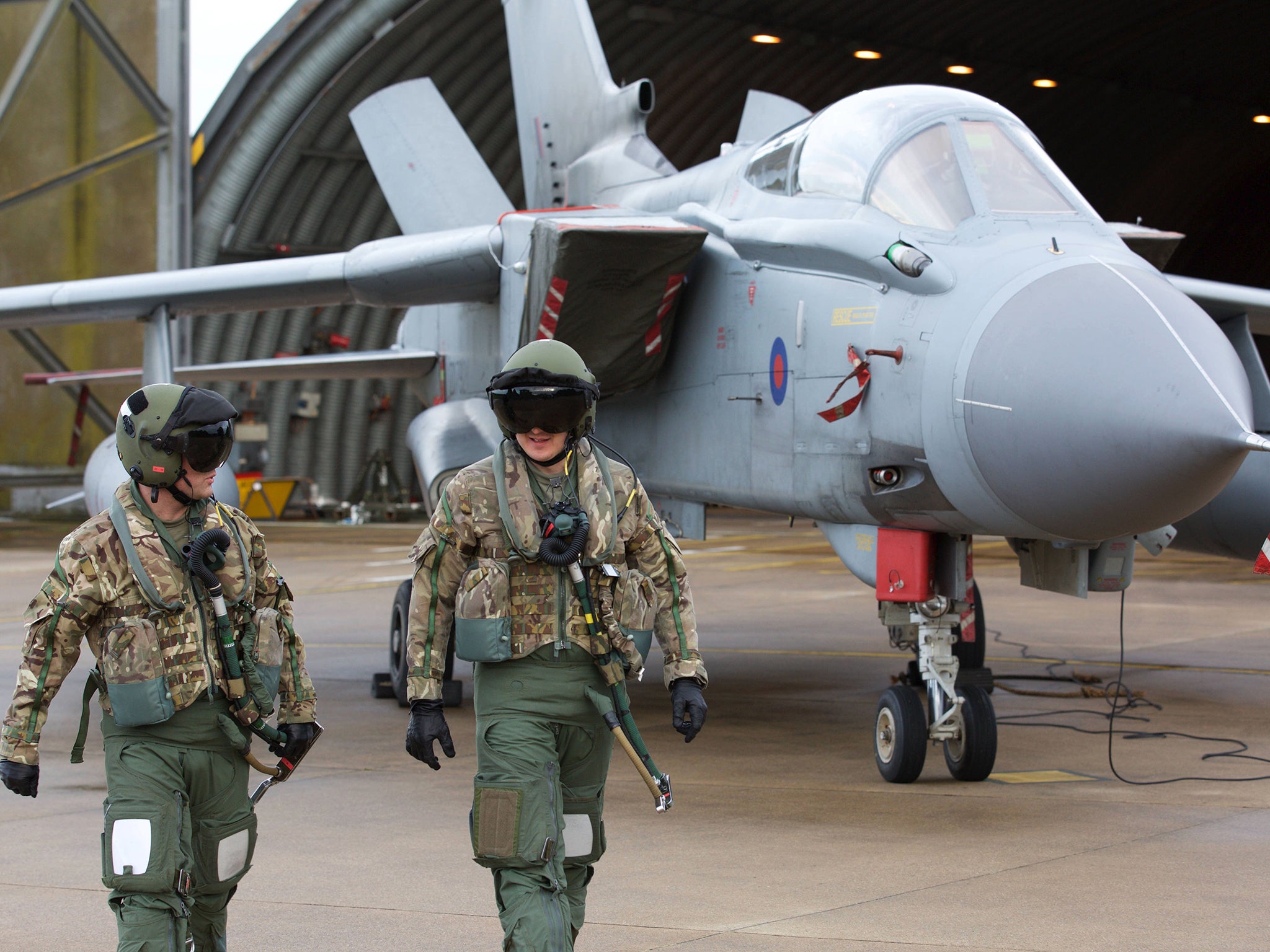Today the RAF turns 100 – we should celebrate by recognising its value without using it as an excuse for militarism
However challenging it may be to retain a sense of unity in the coming year of Brexit debates, we should draw strength from our shared past, not regard it as something to squabble over

Your support helps us to tell the story
From reproductive rights to climate change to Big Tech, The Independent is on the ground when the story is developing. Whether it's investigating the financials of Elon Musk's pro-Trump PAC or producing our latest documentary, 'The A Word', which shines a light on the American women fighting for reproductive rights, we know how important it is to parse out the facts from the messaging.
At such a critical moment in US history, we need reporters on the ground. Your donation allows us to keep sending journalists to speak to both sides of the story.
The Independent is trusted by Americans across the entire political spectrum. And unlike many other quality news outlets, we choose not to lock Americans out of our reporting and analysis with paywalls. We believe quality journalism should be available to everyone, paid for by those who can afford it.
Your support makes all the difference.The 100th anniversary of the establishment of the Royal Air Force brings with it considerable reflection on the past. That is inevitable of course; and right, bearing in mind how many RAF personnel have died in defence of this country.
Born out of a merger between the Royal Flying Corps and the Royal Naval Air Service seven months before the end of the First World War, the RAF was immediately at the forefront of Great Britain’s war effort. It also became, by necessity, a furnace of innovation, as both sides in that grim conflict sought out advances that would lead to air supremacy.
It seems remarkable to consider now that the RAF’s existence came under threat once the Great War came to end – the consequence of internecine battles between the branches of the armed services, and perhaps of a belief that another war on that scale would never happen again.
The policy of appeasing Hitler led to the air force being wildly underprepared by the time the Second World War broke out, although it was the Battle of Britain in the summer of 1940 which ultimately came to symbolise not only this nation’s fortitude in the face of Nazism, but also the RAF’s “finest hour”. Nearly 80 years on, the Spitfire and the Hurricane – not to mention “the few” who piloted them – retain a strikingly powerful place in Britain’s communal psyche.
In the past few years, indeed, there have been times when memories of the Second World War, and especially of the period when Britain was at its most isolated, have been co-opted to score present-day political points – especially in the great Brexit debate. Those who favour EU withdrawal have confused the notion of history being on their side with simply talking nostalgically about things that have happened in the past.
That is unfortunate, and the centenary of the RAF is a useful moment to remember that the history of the United Kingdom is something which binds the people of this country, rather than dividing us. However challenging it may be to retain a sense of unity in the coming year of Brexit debates, we should draw strength from our shared past, not regard it as something to squabble over.
What’s more, when it comes to the RAF – and the other branches of Britain’s armed services for that matter – the present and future are of much greater significance than what has gone before.
In the post-Cold War era, it was for a time fashionable once again to assume (or hope) that the chances of being drawn into a major conflict were minimal. Wars in Iraq and Afghanistan did not devalue the idea that conventional military capacity could be scaled back: future battles would, it seemed, be small-scale, often against guerilla-style enemies.
However, assumptions about peace in our time are always likely to be fraught. In the past few years we have seen the settled world order become topsy-turvy. Putting aside the involvement of major powers in Syria, we have seen Russia annex Crimea and support separatists in Ukraine; North Korea’s nuclear ambitions remain in the balance; and the White House has become home to the most unusual of presidents, whose instincts range from bellicose interference to belligerent isolationism. China’s power continues to grow. And as if this were not enough, Britain is in the throes of a messy divorce from the EU.
The UK’s defence budget is regularly the subject of debate. The present defence secretary, the excitable Gavin Williamson, argues in favour of more spending. And in light of world events, he is right that Britain must not shirk from maintaining sensible levels of expenditure. Nevertheless, the UK still has the fifth biggest defence budget in the world and, as things currently stand, we do not face immediate threats of large-scale war.
For 100 years, the Royal Air Force has played a significant role in this country’s defence, its foreign policy, and its national story. It must continue to be properly funded and resourced – but it must not be a vehicle for militarism, grandstanding or Brexiteering.
Join our commenting forum
Join thought-provoking conversations, follow other Independent readers and see their replies
Comments